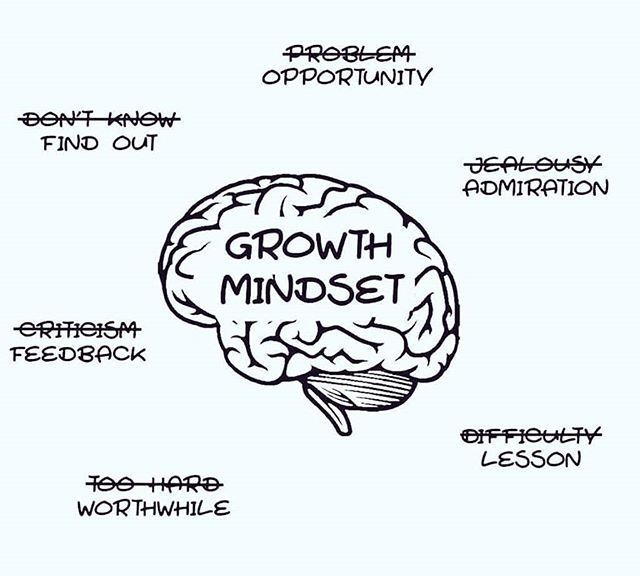
Every year, LinkedIn digs through its vast data set to identify the skills most in-demand from employers. For job seekers, it is crucial to be aware of and understand these in-demand skills, as they can be key talking points in job interviews. This year, alongside predictable abilities such as teamwork and communication, LinkedIn highlighted ‘adaptability’ as “the top skill of the moment.” In today’s fast-moving job market, workers are required to learn new skills and participate positively and enthusiastically in a fast-changing work environment. This mindset, often called a ‘growth mindset,’ is a crucial tool for success in the current job market. Understanding and embracing adaptability can make you feel more prepared and confident in your job search.
The concept of a growth mindset was popularized by psychologist Carol Dweck, who describes it as a person’s capacity to embrace change and actively pursue learning and improvement. Rather than viewing abilities as fixed, a growth mindset involves believing new skills can be developed through dedication and effort.
When I first heard the term’ growth mindset ‘, it seemed like just another corporate buzzword. But, as I delved deeper into its meaning and read about its practical applications, I came to realize that a growth mindset is something we all embody at different stages of our lives–we’ve all faced challenges and failures–it’s our ability to overcome these and learn from them that truly represents this mindset.
Think about the challenges you have faced in the last five years. Most everyone I speak to about their career in that time faced significant challenges in how they did their job, whether they held a job, or how they thought about their careers during and after the COVID-19 pandemic. Many people shared with me that they surprised themselves with their ability to ‘pivot’ and adapt to a quickly changing set of conditions. This adaptability, a key aspect of the growth mindset, made them more resilient and flexible. For some people, it was simply the ability to work from home and realize that they were surprisingly more competent self-managers than they thought they would be. Some people were forced to rethink their careers entirely and develop a whole new set of values about what matters to them about their work and what they can do. Some discovered the joys of work-life balance; others found that not only could they learn to use new technologies but that they actually could enjoy them. One of my clients shared with me the surprising discovery that she valued teamwork and missed it when it was gone, even though she had complained about having to deal with her team for years prior.
What does this have to do with a growth mindset? Your ability to talk about some of the challenges (even failures) you have faced and identify how they were growth opportunities can indicate to an employer that you can bring that same mindset to your work.
Why is a Growth Mindset Important?
Adaptability, optimism, and confidence in your ability to learn–the essence of a growth mindset–are abilities that employers strongly value. They value these skills because they indicate resiliency and openness to learning new things, which is essential in a fast-paced and ever-evolving work environment. A growth mindset refers not only to the individual employee but also to how they regard the company and the role they can play in making it grow through greater adaptability and resiliency.
How to Talk About Your Growth Mindset in an Interview.
1. Share specific examples
In job interviews, the best way to illustrate your skills and attitudes is through concrete examples. Think about times when you faced challenges or setbacks and how you overcame them. Be willing to discuss failures and demonstrate to employers that you can handle them. Use the SAR (Situation, Action, Result) method to tell a coherent and straightforward story.
For instance, a candidate can talk about a time when they took on a new challenge:
Situation: “In my last job, I was asked to lead a project in a new technology area that I was unfamiliar with.”
Action: I dedicated extra time to learning about the technology, sought mentorship from an experienced colleague in the field, and attended relevant workshops.”
Result: “As a result, not only did the project succeed, but I also became the go-to person for others seeking advice on this technology.”
This example demonstrates resiliency, a commitment to learning, and optimism about your ability to embrace challenges and learn from them.
2. Discuss your commitment to lifelong learning.
A passion for lifelong learning can manifest in various ways, including seeking feedback from peers and supervisors, taking courses, and reading books.
Again, use the SAR method:
Situation: “Part of my job involves presenting professional development workshops to staff. I try to get feedback on every presentation I give–I believe that there is always something I can do to make my work better“
Action: “After each presentation, I send out a brief anonymous survey to ensure that staff are comfortable giving me honest feedback. I ask whether they enjoyed the presentation and whether anything could have been done better.”
Result: “I have improved my presentations over time, including taking a course in presentation techniques, a result of which I can show a measurable increase in staff satisfaction.”
This example demonstrates initiative, flexibility, and a commitment to improving performance.
3. Highlight your adaptability in handling change.
Employers are looking for candidates who don’t only adapt but thrive when there are opportunities for change. Share instances where you successfully adjusted to new circumstances or learned new skills on the fly:
Situation: “During the pandemic, my employer instituted a new database that required staff to capture our work with clients in detail. My initial response was to be somewhat overwhelmed at figuring this out myself and start capturing every customer’s contact details.”
Action: ” I reached out to some colleagues, and we set up a group discussion online to figure out how to make this work. We used video conferencing technology to try it out together and figure out strategies that worked. We met a couple of times afterward to review our progress and iron out issues we encountered.”
Result: ” After using it for a while, I became quite proficient. I realized that it is a highly effective tool to track customer contacts. It has significantly improved and made my work more efficient.”
4. Discuss your own goals and learning plans.
Expressing your eagerness to continue growing can further emphasize your growth mindset. Employers value employees who are committed to learning new information and gaining new skills. To indicate your interest in this, talk about your interest in lifelong learning.
Talk about areas where you want to develop and outline your learning plan: “I’m excited about the opportunity to deepen my knowledge in [specific area related to the job]. I’ve already started taking online courses and attending industry webinars to stay ahead of the curve.”.. “By continually pursuing new learning opportunities, I aim to bring innovative solutions and fresh perspectives to the team.”
Tips for better interviewing:
Be genuine: Authenticity is critical–be honest about your experiences and how you’ve approached learning and development. Consider even sharing failures or struggles you’ve had and how you’ve overcome them
Be specific: Using SAR enables you to share specific examples to describe your growth mindset clearly.
Practice: Prepare and rehearse how you’ll discuss your growth mindset so you can present it confidently during interviews.
By effectively communicating your growth mindset, you’ll show potential employers you’re capable and committed to continuous improvement and success. Embrace these strategies, and you’ll be well on your way to making a memorable impression and standing out as an asset to potential employers.





